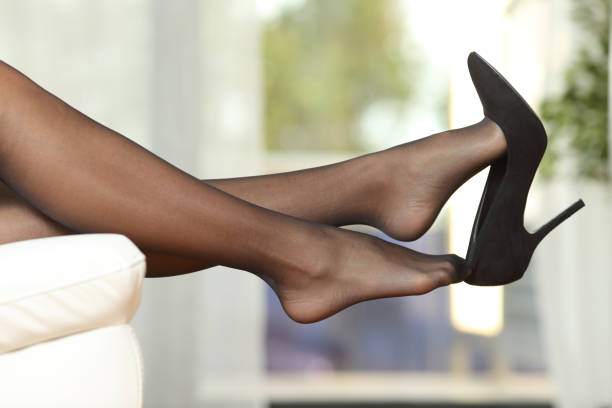Spiritual Meaning of Losing a Shoe
Throughout various cultures and religions, losing a shoe is seen as more than just an annoyance; it is said to carry spiritual meanings related to protection, freedom, and even travel.
The Shoe as A Symbol of Protection
The shoe has traditionally been used to protect feet from the elements. In some cultures, it was also believed that shoes had magical properties that could help safeguard people from evil forces.
Shoes were often gifted with special blessings or spells, believed to protect the wearer from harm.
In Christian tradition, priests wear shoes during religious services for the same reason — it is seen as a symbol of protection against negative energies.
The Shoe as A Symbol of Freedom
Historically, shoes have been associated with freedom and movement in many cultures. Taking off one’s shoes has been seen as a sign of liberation or independence from oppression or hardship.
This can be found in Biblical stories, such as Moses coming down from Mount Sinai without his sandals—indicating that he had achieved spiritual enlightenment and newfound freedom.
Taking off one’s shoes has also served as an expression of breaking away from traditional values or societal norms, indicating that someone was ready to start fresh and embark on their journey.
Symbolic Of Losing The Wrong Path Or Finding A New One
Losing one’s shoe can be interpreted in many ways, depending on the context in which it is found in the story.
It can represent getting lost or taking a wrong turn along the path. Still, it can also serve as a reminder to take control and find one’s direction again—moving onto new beginnings or simply changing one’s outlook for the better.
Omen For Travel
In some folk traditions, losing one’s shoe is seen as an omen for upcoming travel—either physical journeys or internal psychological ones, such as discovering oneself or understanding new concepts.
It serves as an invitation to explore new places, experiences, and ideas while providing comfort in knowing that one will continue on their journey regardless of how difficult the roads ahead might be.
The Shoe As A Symbol of Status
Historically, shoes have been associated with social status and wealth in many cultures. For example, in Ancient China, the upper class wore embroidered shoes and sandals made of silk, whereas the lower classes wore leather or plain-looking shoes.
Furthermore, footwear was regarded as a symbol of power and authority — the Emperor was said to be the only one allowed to don yellow satin shoes and gold-embroidered slippers as a sign of his ruling status.
Shoes as Charms
In some cultures, it is believed that wearing certain types of shoes with specific features can act as charms or ‘good luck’ talismans.
For instance, in Austria, it was thought that if one wore seven-holed galoshes, they were sure to find treasure; in Irish culture, it was believed that if one walked around their village at midnight barefoot, all their wishes would come true.
Such superstitions are still held by some people today who believe that their desired outcomes will be achieved through the power of the shoe.
The Shoe As A Connection To The Soul
For some spiritual practitioners, the shoe connects a person to their soul and gives them grounding energy.
It is a protective layer that keeps energy anchored in this realm, allowing deeper meditation and prayer than without it.
In Buddhism, taking off one’s shoes before entering sacred spaces such as temples or pagodas is seen as a sign of reverence and respect toward spiritual beings; letting go of physical attachments helps them to better connect with their inner self.
Shoes For Transitioning Through Life Changes
Taking off one’s shoes has traditionally been seen as part of ceremonial practices when transitioning into new stages or cycles in life, such as weddings or funerals.
It symbolizes that the person is ready to make changes and move onto different paths — wherever these may lead them.
In some Native American tribes, it is believed that once someone has taken off their shoes, they are no longer bound to any prior agreements but are free to begin anew — allowing for transformation both within oneself and society at large.
Shoes To Spread Good Luck
In some Eastern cultures, shoes are seen as an item that can bring good luck and fortune.
People often place them at the door of their homes, usually in the right-hand corner, to welcome prosperity into their lives.
This act is seen as an offering of gratitude to the gods; some people even leave coins or other small items inside the shoes to show their appreciation.
This practice is believed to increase wealth and luck while protecting one from harm.
Shoes As A Sign Of Rebirth
In certain folktales and legends, it is said that putting on a new pair of shoes can represent rebirth or rejuvenation, symbolizing turning over a new leaf in life.
It serves as a literal and figurative reminder for someone to break away from old habits and routines and start fresh with renewed enthusiasm for life’s journey ahead.
Conclusion
Shoes play an important role in many past and present cultures.
From a practical standpoint, they provide us with shelter and protection from the elements; from a spiritual and symbolic perspective, they can represent good luck, status, char, and ms and even be used as transformation tools.
Regardless of the beliefs or customs that accompany them, shoes are special objects full of meaning which will continue to be part of human life for years to come.







